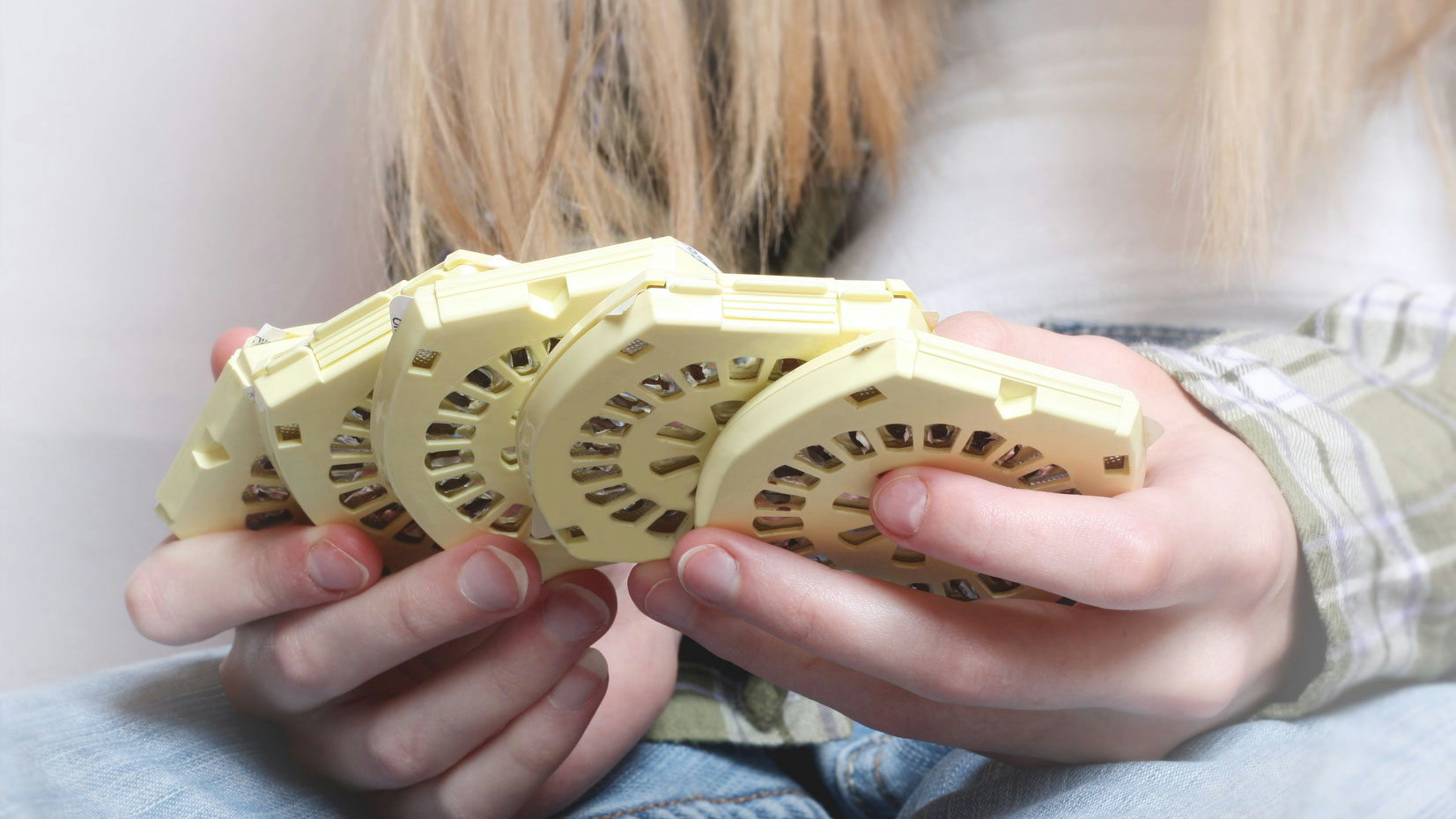Here’s What To Expect When You Stop Taking Birth Control

When you stop taking oral contraceptives, which act to manipulate your hormones, changes in your body are to be expected. While similar changes can also occur with other hormonal or even non-hormonal forms of birth control, like hormonal and non-hormonal intrauterine devices (IUD) and implants, this article will focus on those transitioning off hormonal birth control pills.
Changes can occur during a “ramp off” period that varies from person to person. You may notice acute changes and effects that linger for months or even years after you stop. Negative side effects that last longer than a month or two can be addressed by talking to a doctor or expert in hormonal health and help your body get back to homeostasis.
Weight Fluctuations
While not fully understood medically, many women taking birth control report weight changes while on the birth control pill, and the inverse changes once stopping the pill. There is some evidence that birth control affects glucose tolerance and insulin response in some people which explains weight gain while on the pill. (1) Because any hormonal change can have an effect on hunger, energy, sleep, and water retention -- weight fluctuations could be due to these changes as secondary effects. So inversely, stopping birth control can reverse any of these changes or
Skin Changes
As oral contraceptives are an approved and often effective way to keep hormonal acne at bay (2), the opposite reaction can be true when coming off of birth control. If you struggled with acne before taking birth control, it is reasonable to assume this may return after coming off of the pill. Conversely, if acne has rarely been an issue, there is not a lot of evidence to suggest merely coming off the pill will cause changes to your skin in this way. As with anything changing our hormones, skin changes can absolutely occur. Any of these changes can be addressed with an expert who can help you balance your hormones without use of the birth control pill. Clearing up hormonal acne can be done naturally with functional medicine methodology.
Hair Loss
While the science on pregnancy resulting in hair loss is well substantiated, the effect of birth control changing hair growth is less clear. (3) There exist observed links between certain hormones, especially estrogen, levels and hair growth/loss. Similar to the other points on this list, if you were experiencing hair loss before going on oral contraceptive, this pattern may return once going off the pill.
Period Changes
The birth control pill introduces a controlled structure to a woman’s menstrual cycle. When these artificial hormones are removed, the body is left to calibrate and renormalize. This can absolutely cause drastic changes in the length of cycle and severity of bleeding and associated symptoms. While there can be a readjustment period, some of these changes can remain ongoing. If your natural cycle comes with severe symptoms, it is time to consult an expert of hormone balancing and health.
Related: 9 Natural Ways To Regulate Your Cycle And Balance Hormones
Breast Tenderness
The hormone withdrawal after stopping birth control can also cause breast tenderness in over half of women (4). While this is most common in the premenstrual week of a cycle, it may happen any time hormones are severely fluctuating.
Changes To Sex Drive
Because the pill lowers circulating testosterone, it can also lower libido. Researchers believe sufficient testosterone to be key in signaling the body to turn on sexual desire. Studies show this affects up to 15% of women taking the pill. (5) If this is you, you can reasonably expect that coming off the pill will eventually restore you to your natural hormonal balance and sexual health.
Migraines
Migraine sufferers sometimes notice a menstruation-related symptom onset. The birth control pill can be an effective way to prevent migraines from coming on in the first place or dampening their severity. (6) When coming off birth control, the return of these types of migraines can be another symptom to look out for and get ahead of, especially in terms of looking at hormonal health holistically with an expert.
Mood Changes
Nearly anyone with a period has experienced the undesirable effects of bad news associated with PMS or periods. Oral contraceptives have been shown to help improve overall mood, which may be due to tampering some of these hormonal abnormalities and effects. (7) Mood changes, in turn, can be expected when a birth control prescription has ended. Check out my mood-supporting supplement to help during this transition and beyond.
Different PMS Symptoms
Because the pill can help manage PMS and overall hormonal fluctuations, they can also help prevent many of its symptoms including:
- Fatigue
- Changes in appetite
- Bloating
- Headaches
- Joint or muscle pain (lower back aches most common)
- Sleeping issues
- Digestive issues like constipation, diarrhea, or nausea
Stopping birth control can cause a return of these PMS symptoms.
High Blood Pressure
Research suggests that higher hormonal dose contraceptives can elevate blood pressure and cause high blood pressure in some women. (8) Reversing this can, then, cause the opposite outcome of lowering blood pressure. For most women this won’t cause an issue but it is an important thing to look out for in either direction whether you are starting or stopping birth control.
Fertility
This might sound like a “duh,” but it’s worth noting. You are no longer protected against pregnancy when you stop taking the birth control pill. And while for some women there is a period of time that their body takes adjusting back to normal fertility, for some women the change can be nearly instant. So make sure to employ other prevention strategies if your plan is to avoid pregnancy while continuing sexual activity with the opposite sex.
Tips For Stopping Birth Control In The Healthiest Way Possible
When coming off birth control, the hormonal off ramp can be confusing and frustrating. The best way to return to your natural hormonal balance (and make sure that is a healthy one!) is to carefully monitor changes and work with healthcare professionals.
- Work with your doctor or a functional expert in hormone health
- Want to rehab your hormones? As one of the first functional medicine telehealth clinics in the world, we provide webcam health consultations for people around the globe.
- Make sure your diet and lifestyle support hormonal health
- Get plenty of exercise
- Try cycle syncing
- Consider supplementation (Check out my hormone-supporting supplements)
- Be patient and kind to yourself as your body readjusts
Birth control pills can vary with hormone type and dose. These variables can affect the likelihood and strength of your withdrawal symptoms.Birth control pills can vary with hormone type and dose. These variables can affect the likelihood and strength of your withdrawal symptoms.
The science is not conclusive yet, but some initial research suggests that hormonal contraception could make women’s cervical cells more susceptible to HPV.
It is recommended to finish a full cycle while taking oral contraceptives to help avoid some of the initial withdrawal symptoms and allow your body to return to a natural cycle more easily. However, stopping “cold turkey” should not cause long term damage.
Start Your Health Journey Today
FUNCTIONAL MEDICINE CONSULTATIONS FOR PEOPLE AROUND THE WORLD
- SONDHEIMER, STEVEN MD. METABOLIC EFFECTS OF THE BIRTH CONTROL PILL. Clinical Obstetrics and Gynecology 24(3):p 927-942, September 1981.
- Redmond, Geoffrey P. Effectiveness of oral contraceptives in the treatment of acne. Contraception. VOLUME 58, ISSUE 3, SUPPLEMENT 1, 29S-33S, SEPTEMBER 1998.
- Hair loss and contraceptives. Br Med J. 1973 Jun 2;2(5865):499-500. PMID: 4736624; PMCID: PMC1589552.
- SULAK, PATRICIA J. MD; SCOW, ROGER D. MD; PREECE, CHERYL MS; RIGGS, MARK W. PhD; KUEHL, THOMAS J. PhD. Hormone Withdrawal Symptoms in Oral Contraceptive Users. Obstetrics & Gynecology 95(2):p 261-266, February 2000.
- Gupta, Alisha Haridasani. "The Link Between Birth Control Pills and Libido." New York Times, 30 Jan. 2024, p. D7. Gale OneFile: Health and Medicine, link.gale.com/apps/doc/A780921479/HRCA?u=anon~98710dd8&sid=googleScholar&xid=e0e452c5. Accessed 20 June 2024.
- Jones, Rachel K. Beyond Birth Control: The Overlooked Benefits Of Oral Contraceptive Pills. Guttmacher Institute, November 2011.
- Schaffir, J., Worly, B. L., & Gur, T. L. (2016). Combined hormonal contraception and its effects on mood: a critical review. The European Journal of Contraception & Reproductive Health Care, 21(5), 347–355. https://doi.org/10.1080/13625187.2016.1217327
- Harvard Health Publishing. (2020, November 13). Birth control and high blood pressure: Which methods are safe for you? Harvard Health Blog. Retrieved June 20, 2024
The information on this website has not been evaluated by the Food & Drug Administration or any other medical body. We do not aim to diagnose, treat, cure or prevent any illness or disease. Information is shared for educational purposes only. You must consult your doctor before acting on any content on this website, especially if you are pregnant, nursing, taking medication, or have a medical condition.
Our content may include products that have been independently chosen and recommended by Dr. Will Cole and our editors. If you purchase something mentioned in this article, we may earn a small commission.

BY DR. WILL COLE
Dr. Will Cole, DNM, IFMCP, DC is a leading functional medicine expert who consults people around the globe, starting one of the first functional medicine telehealth centers in the world. Named one of the top 50 functional and integrative doctors in the nation, Dr. Will Cole provides a functional medicine approach for thyroid issues, autoimmune conditions, hormonal imbalances, digestive disorders, and brain problems. He is also the host of the popular The Art of Being Well podcast and the New York Times bestselling author of Intuitive Fasting, Ketotarian, Gut Feelings, and The Inflammation Spectrum.

Gut Feelings
Healing The Shame-Fueled Relationship
Between What You Eat And How You Feel

